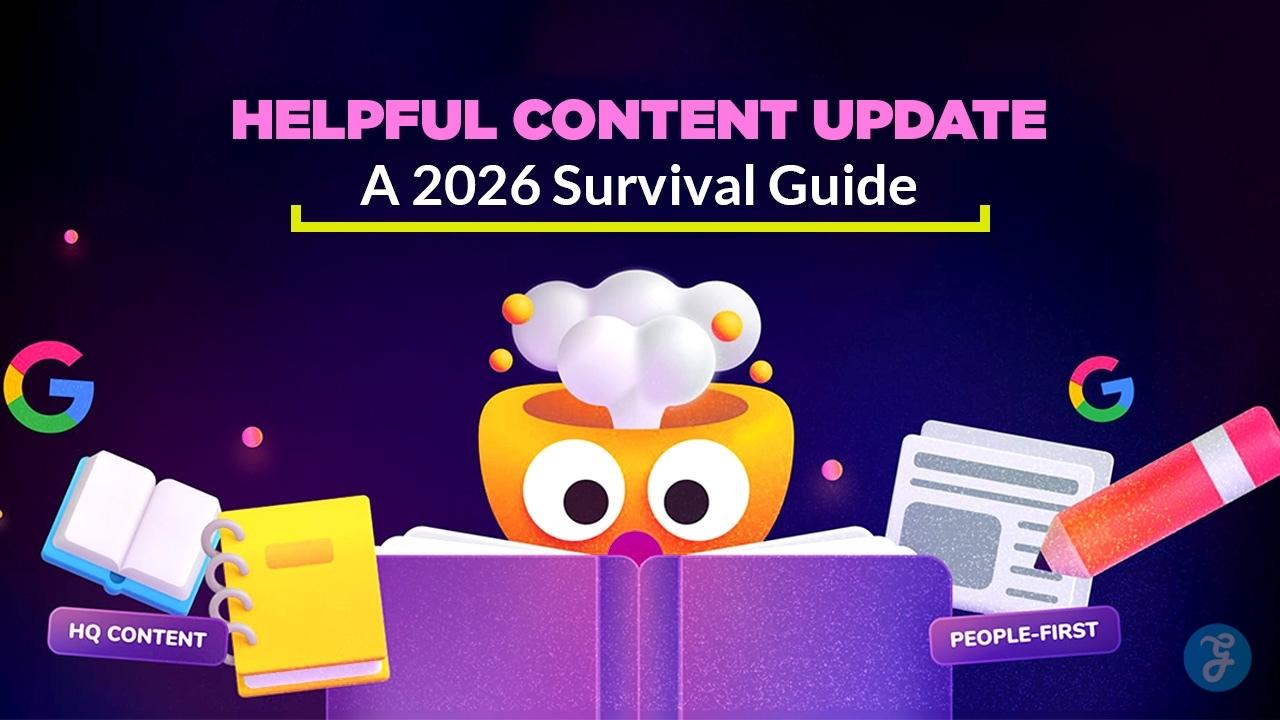Strong relationships are the foundation of a happy life. They bring joy, support, and meaning to our everyday experiences. But what makes a relationship truly strong and lasting?
Understanding the essential qualities that build deep connections allows you to create a love that stands the test of time. This article explores 12 crucial attributes in the healthiest and most successful relationships.
You’ll learn practical ways to nurture these qualities with your partner and strengthen your bond.
1. Trustworthiness
Trust forms the foundation of any strong relationship. It’s the glue that holds couples together through good times and bad. Trusting your partner makes you feel safe and secure in your bond.
Building trust takes time and effort. It involves being reliable, keeping your word, and following through on commitments. When you say you’ll do something, make sure you do it.
Honesty is critical to trustworthiness. Be open about your thoughts, feelings, and actions. Avoid hiding things or telling lies, even small ones. Little fibs can erode trust over time.
Respect your partner’s privacy and boundaries. Don’t snoop through their phone or personal belongings. Give them space when they need it.
Own up to your mistakes. If you mess up, admit it and apologise sincerely. Taking responsibility shows maturity and builds trust.
Be consistent in your words and actions. Your partner should be able to count on you to behave in predictable ways. Sudden mood swings or erratic behaviour can damage trust.
Trust also means having faith in your partner’s abilities. Believe in them and support their goals and dreams. Your confidence in them will strengthen your bond.
2. Empathy
Empathy is a crucial skill in any strong relationship. It’s the ability to understand and share your partner’s feelings.
When you show empathy, you put yourself in your partner’s shoes. You try to see things from their point of view.
This skill helps build trust and connection. It makes your partner feel heard and valued.
To practice empathy, listen carefully when your partner speaks. Pay attention to their body language and tone of voice.
Try to understand their emotions, even if you disagree with their perspective. Avoid judging or dismissing their feelings.
Show that you care by offering support and comfort. Sometimes, a simple “I understand how you feel” can make a big difference.
Empathy also means being aware of your partner’s needs. You might notice when they’re stressed and offer help without being asked.
Remember, empathy is a two-way street. Encourage your partner to practice empathy towards you as well.
Developing this skill will create a deeper bond with your partner. You’ll be better equipped to handle conflicts and support each other through tough times.
Empathy takes practice, but it’s worth the effort. It can transform your relationship and lead to lasting love.
3. Effective communication
Good communication is critical to a strong relationship. You need to talk openly and honestly with your partner. This means sharing your thoughts and feelings.
It’s also important to listen well. Pay attention when your partner speaks. Try to understand their point of view, even if you disagree.
Ask questions if you’re not sure what they mean. This shows you care and want to understand them better.
Be willing to have tough talks, too. Don’t avoid essential issues. Face problems together and work through them as a team.
Remember that communication isn’t just words. Your tone of voice and body language matter, too. Make sure these match what you’re saying.
Try to talk every day, even about small things. This keeps you connected. Share the good and bad parts of your day.
When you argue, stay respectful. Focus on the issue, not personal attacks. Look for solutions together instead of trying to win.
Practice active listening. Repeat back what you heard to make sure you understood correctly. This can prevent misunderstandings.
Be patient when talking about sensitive topics. Give each other time to process and respond. Don’t rush or pressure your partner.
4. Mutual respect
Mutual respect is a crucial building block for strong relationships. It means valuing your partner’s thoughts, feelings, and boundaries. When you respect each other, you create a safe space to be yourselves.
Showing respect involves listening without judgment. You pay attention to your partner’s words and try to understand their point of view. Even if you disagree, you treat their opinions as valid and vital.
Respect also means honouring each other’s privacy and personal space. You ask before making decisions that affect both of you. You don’t pressure your partner to do things they’re uncomfortable with.
In arguments, respect helps keep things civil. You avoid name-calling or bringing up past mistakes. Instead, you focus on the issue and work together to find solutions.
Respecting your partner’s goals and dreams is crucial, too. You support their ambitions, even if they’re different from yours. You celebrate their successes and comfort them during setbacks.
Remember, respect goes both ways. It’s not just about giving respect but also expecting it in return. If you feel disrespected, speak up calmly and clearly. A relationship built on mutual respect can weather many storms and grow stronger.
5. Shared goals
Having shared goals helps couples build a strong future together. When you and your partner work towards common objectives, it creates a sense of unity and purpose.
These goals can be big or small. You may want to save for a house, start a family, or travel the world. Or aim to eat healthier meals together or learn a new hobby as a team.
Setting goals together lets you plan and dream as a unit. It gives you something exciting to look forward to and work on side by side.
Remember, your individual goals matter, too. A good relationship balances shared aims with personal aspirations. Support each other’s dreams while nurturing your joint vision.
Talk about your goals regularly. Check-in on your progress and adjust as needed. Celebrate your wins together, no matter how small.
By aligning your goals, you create a shared path forward. This shared direction strengthens your bond and helps your relationship grow over time.
6. Emotional support
Emotional support is a vital part of any strong relationship. It means being there for your partner when they need you. This can be during tough times or when they’re happy.
You show emotional support by listening without judgment. When your partner talks about their feelings, pay attention. Don’t try to fix their problems right away. Sometimes, they just need you to hear them out.
Offering comfort is another way to give emotional support. A hug, kind words, or just sitting together can help. These small acts show you care about your partner’s well-being.
It’s also important to celebrate your partner’s successes. Be excited for them when good things happen. This shows you’re invested in their happiness.
Remember, emotional support goes both ways. You should be able to lean on your partner, too. A strong relationship has to give and take.
Try to understand your partner’s emotional needs. Some people need more support than others. Talk about what makes you both feel cared for.
Being emotionally supportive builds trust and closeness. It helps you and your partner feel safe with each other. This safety allows your relationship to grow stronger over time.
7. Compromise
Compromise is a crucial part of any strong relationship. It means finding a middle ground when you and your partner disagree. This skill helps you work together as a team.
You need to be open to your partner’s views. Listen to what they want and share your own needs, too. Try to find solutions that work for both of you.
Sometimes, you might need to give up something you want. Other times, your partner may do the same for you. It’s about balance and meeting each other halfway.
Good compromise starts with respect. Value your partner’s feelings and ideas. When you show respect, they’re likelier to do the same for you.
Talk calmly when you face issues. Share your thoughts without blame. Ask your partner to explain their side, too. This helps you understand each other better.
Be ready to find new options. Think outside the box to solve problems. You might come up with ideas that make both of you happy.
Remember, compromise isn’t about winning or losing. It’s about working together to make your relationship stronger. With practice, you’ll get better at finding fair solutions.
8. Independence
Independence is critical to a strong relationship. You and your partner need space to grow as individuals. This helps keep things fresh and exciting.
Give each other room to pursue personal interests. Support your partner’s hobbies and goals, even if they differ from yours. Encourage them to spend time with friends and family without you.
Don’t rely on your partner for everything. Learn to be self-sufficient. This builds confidence and reduces neediness. It’s healthy to have some separate activities and friendships.
Trust is essential for independence in a relationship. You shouldn’t feel the need to control or monitor your partner. Let them make their own choices and respect their privacy.
Balance is important. Spend quality time together, but also enjoy time apart. This creates a sense of anticipation and appreciation when you reunite.
Remember, two whole individuals make a stronger couple than two halves desperately clinging to each other. Embrace your unique identity within the relationship. This keeps the spark alive and prevents codependency.
9. Physical affection
Physical affection is a vital part of solid relationships. Hugs, kisses, and gentle touches help couples feel close. These small acts show love and care without words.
Touch releases feel-good chemicals in your brain. This can lower stress and make you happier. Holding hands or cuddling can make you feel safe with your partner.
Regular affection keeps the spark alive in long-term relationships. It reminds you of your bond and attraction. Even quick hugs or shoulder rubs can mean a lot.
Make time for physical closeness each day. This could be a kiss goodbye or snuggling on the couch. Find ways that work for both of you.
Remember, everyone has different comfort levels with touch. Talk to your partner about what feels good to them. Respect their boundaries and preferences.
Physical affection isn’t just about sex. It includes many forms of loving contact. A back rub or playing with your partner’s hair can be soothing after a long day.
Try to be mindful when touching your partner. Put away distractions and focus on the moment. This makes the experience more meaningful for both of you.
10. Loyalty
Loyalty is a vital part of solid relationships. It means being faithful to your partner and the bond you share. Loyal partners stick by each other through good times and bad.
You show loyalty by keeping your promises. When you say you’ll do something, follow through. This builds trust and shows your commitment.
Being loyal also means not betraying your partner’s trust. You don’t share private details about them with others. You keep their secrets and protect their privacy.
Loyalty involves staying faithful. You don’t cheat or look for romance elsewhere. Your focus is on nurturing your current relationship.
You can be loyal while still having your own life. Keep your friendships and hobbies. This balance makes you a better partner.
Supporting your partner’s goals is another way to show loyalty. Cheer them on and help them succeed. Their wins become your wins, too.
Loyal partners defend each other. If someone criticises your partner, you stand up for them. You’re a team facing the world together.
Remember, loyalty goes both ways. Expect it from your partner, too. A relationship where both people are loyal is solid and lasting.
11. Open-mindedness
Open-mindedness is essential to a strong relationship. It means being willing to listen and consider new ideas. You and your partner may not always agree, but you can still hear each other out.
Being open-minded helps you grow together. You can learn from each other’s different views and experiences. This makes your bond more profound and more enjoyable.
It’s also about accepting change. People grow and evolve. An open mind lets you embrace these changes in yourself and your partner. You can adapt and support each other as you both develop.
Open-mindedness helps solve problems, too. You can work through issues more efficiently when you’re open to different solutions. You might find new ways to compromise that you hadn’t thought of before.
It’s essential to be curious about your partner’s thoughts and feelings. Ask questions and listen to the answers. This shows you value their perspective, even if it’s different from yours.
Remember, being open-minded doesn’t mean you have to agree with everything. It’s about respect and understanding. You can still have your views while being open to others.
12. Consistent effort
Strong relationships don’t just happen on their own. They require ongoing work and dedication from both partners. You need to put in consistent effort to keep your bond strong.
This means making time for each other regularly. Plan date nights, even if you’ve been together for years. Show interest in your partner’s day and listen when they share.
Small gestures matter, too. Leave a sweet note, give a hug, or do a chore without being asked. These little acts add up and show you care.
It’s also essential to keep growing together. Try new activities as a couple. Learn new skills or take on challenges side by side. This keeps things fresh and exciting.
Don’t forget to address issues as they come up. Talk through problems calmly and work as a team to find solutions. Avoid letting resentment build up over time.
Remember, love needs tending like a garden. Water it with attention, care, and effort. Your relationship will bloom and thrive when you nurture it every day.
Importance of Communication
Communication forms the core of solid relationships. It helps partners understand each other and build trust. Good communication involves both talking and listening.
Effective Listening
Listening is critical to good communication. When your partner talks, give them your full attention. Put away your phone and make eye contact. Try to understand their point of view, even if you disagree.
Ask questions to show you’re interested. Repeat back what they said to make sure you got it right. This helps avoid misunderstandings.
Don’t interrupt or jump to conclusions. Let your partner finish their thoughts before you respond. Good listeners make their partners feel heard and valued.
Expressing Feelings
Sharing your feelings openly is essential. Use “I” statements to express yourself clearly. For example, say, “I feel hurt when…” instead of “You always…”
Be honest about your needs and wants. Your partner can’t read your mind. If something is bothering you, speak up calmly. Don’t let issues fester.
Choose the right time and place for serious talks. Avoid extensive discussions when you’re tired or stressed. Be respectful, even when topics are challenging. Stay focused on solving problems together.
Building Trust and Respect
Trust and respect form the bedrock of solid relationships. They create a safe space for partners to be themselves and grow together.
Consistency in Actions
Show up for your partner every day. Do what you say you’ll do. Keep your promises, big and small. Be on time for dates and events. Follow through on commitments.
These consistent actions build trust over time. They show your partner they can count on you. Reliability in everyday life matters just as much as grand gestures.
If you make a mistake, own up to it. Apologise sincerely and make it right. Everyone slips up sometimes, but how you handle it shapes trust.
Honesty and Transparency
Tell the truth, even when it’s hard. Share your thoughts and feelings openly. Don’t keep secrets that could hurt your relationship.
Be clear about your needs and boundaries. Ask for what you want directly. Avoid hints or expecting your partner to read your mind.
Listen without judgment when your partner opens up. Create a safe space for honest talks. Show you value their truth, even if you disagree.
If you’re upset, say so calmly. Don’t let resentment build up. Work through issues together with kindness and respect.
Takeaways
A strong and lasting relationship requires a combination of essential qualities, including trustworthiness, empathy, effective communication, mutual respect, shared goals, emotional support, compromise, independence, physical affection, loyalty, open-mindedness, and consistent effort. Each of these attributes plays a crucial role in building and maintaining a deep connection with your partner.
By nurturing these qualities, you create a foundation of love, trust, and understanding that can withstand the challenges of life. Remember, relationships thrive when both partners are committed to growing together, supporting each other, and putting in the necessary effort to keep the bond strong.
A lasting love isn’t just about finding the right person—it’s about continuously building and strengthening the relationship you have. With these tips, you can cultivate a partnership that brings joy, fulfilment, and enduring happiness.








































